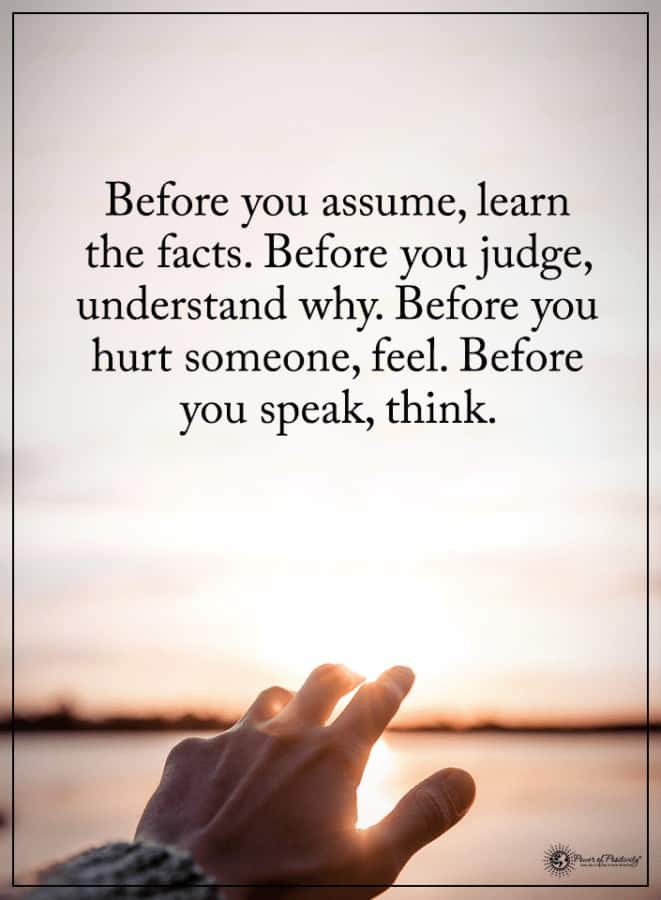Getting therapy or counseling for problems seems to be a trend nowadays. It’s nothing for people to casually drop a line about “going to see their therapist” in social conversations. Therapists are like cell phones – everyone has one.
Counseling can be good up to a certain point. However, the psychological issues that many people face these days may be beyond the scope of a therapist’s help.
If you’ve been seeing a therapist and you still seem to have problems, you’re not alone. Here are five reasons why counseling doesn’t may work for you. Don’t worry. These five reasons are probably not your fault.
1. The therapist might not be qualified to help you.
A lot of people might not realize that their therapist isn’t qualified in the right areas to help them. Just because your therapist went to college and got a degree doesn’t mean they suddenly know it all. After all, a degree is just a piece of paper.
The therapist might have made bad grades in college. They may have just done the bare minimum to pass. You don’t know if your therapist cheated their way through college or not.
Hopefully, this isn’t the case, but unfortunately, it happens. Some people just want a paycheck. Don’t let this make you paranoid. Just keep in mind that sometimes people aren’t always what they seem.
The good news is that in most cases, the therapist isn’t malicious. It’s possible that they just genuinely aren’t good at their job. It happens.
Another consideration is what they’re certified in. Perhaps they don’t specialize in the area that you need help in.
There are four types of therapists:
- Psychiatrists – actual medical doctors (MD) who can prescribe medicine.
- Psychologists – like psychiatrists, but they can’t prescribe medicine. They usually have a doctorate degree.
- Licensed Professional Counselor – not doctors. They are just counselors. They have, at minimum, a master’s degree and state certification.
- Licensed Clinical Social Worker – again, not a doctor. They usually have a master’s degree in social work.
As you can see, if you’re counseling needs are more medical, you need to make sure that you’re seeing a psychiatrist or a psychologist.
It’s important to shop around for a therapist just like you would shop around for any major purchase you’d make. Look at reviews, see if they’re a part of the Better Business Bureau (BBB), and check out any professional associations they’re a part of. Unfortunately, you probably won’t be able to talk with their clients since counseling is confidential, so you’ll have to rely on online reviews.
Sometimes your insurance may only cover one therapist. If that’s the case, you might feel like you don’t have a choice in the matter. However, if the therapist isn’t helping you, it’s a waste of everyone’s time and money.
2. You and your therapist just don’t mesh well.
Some people just don’t get along. Maybe you can’t pinpoint what it is about the therapist that rubs you the wrong way exactly, but you can feel that something is not quite right. It could be just a bad vibe that you’re getting from the therapist.
It’s not that anything “bad” has happened between you and the therapist (hopefully). Maybe the therapist is just not the type of person you’d ever see yourself interacting with.
You probably feel like the responsible thing to do is to ignore this feeling. We’re all different, and we should accept each other’s differences. While that sounds like the fair thing to do, it’s not necessarily the right thing to do.
By forcing yourself to work with a therapist that you don’t necessarily mesh well with, you’re putting yourself in an uncomfortable situation. You need a therapist you can trust and open up to. If you don’t like your therapist, there is always going to be a part of you that you hold back, which hurts your chances of successful therapy.
It might not all be on you. Maybe you feel like your therapist doesn’t like you. Even if this isn’t true, if you feel that way, then your therapy will be negatively affected by this feeling. Perhaps the therapist can help you work through those feelings, but you’ll probably be better off just seeing a therapist that you mesh well with.
3. You don’t have enough time.
Everyone has different therapeutic needs. Just as the counseling is often tailored to the individual, the time should also be. Unfortunately, that’s not the way it works.
Most therapy sessions are a half-hour to an hour and a half. Once you’ve reached that time limit, the therapist will abruptly stop your session. Most of the time, this is because they have a line of clients behind you. It could be that your insurance only covers a certain amount of time and, since therapists get paid by the hour, they’re not inclined to give you any freebie minutes.
If you’ve ever been knee-deep in talking to a therapist and they suddenly cut you off and say your times up, you know how disorienting that feeling can be. Here you are pouring your heart out, finally, and the therapist suddenly decides they don’t want to listen anymore. That’s not exactly what happens, but that’s what it feels like.
Now you must hold it all in until next week. By then, your feelings and your life might change, and the point you were making this week might not be relevant anymore by next week.
Time could be a big reason why counseling isn’t working for you. You simply don’t have enough time. Sessions shouldn’t be a one-size-fits-all time frame, but they are, unfortunately.
4. It’s too expensive.
If you’re lucky enough to have insurance that covers counseling, this may not affect you very much. However, if you don’t have insurance, that means that you’re paying for counseling out of pocket.
Let’s face it – counseling is ridiculously expensive. The average person can only afford to pay out of pocket for a few sessions. Two sessions could easily be your entire paycheck for the week.
Even if you’re rich and you can afford all the sessions you need, the cost of counseling can be surprising. Paying all this money to talk to someone could make you feel worse. This dilemma is especially true if you’re struggling to make ends meet.
Trying to pay expensive counseling bills can cause mental disturbances on top of what you already have going on. You’ll begin to worry about how you’ll keep up with payments. You might start thinking about what you could be doing with that money you’re spending just to talk to a stranger.
Eventually, worrying about the cost of counseling will probably get too overwhelming. You may end up quitting, which essentially kills the progress that you’ve made up to that point.
Don’t feel bad. Lots of people can’t afford to pay for counseling out of pocket. It’s just too expensive.
5. You need more than counseling.
This one does have to do with you a little bit, but not in a sense that you’ve done anything wrong. As stated before, therapy is not a one-size-fits-all type of treatment. For some people, a few sessions on a couch with a therapist will set them straight. For others, simply talking out their problems doesn’t even begin to scratch the surface.
There is a possibility that you need something besides counseling or something in addition to counseling. The solution could be a multi-step approach. Often this means therapy plus medication.
Medication isn’t the only thing that could be added to counseling to make it work. You might need to make lifestyle changes. This turnaround can come in the form of changing your diet, getting rid of toxic people in your life, making a career change, and more.
If talking about your issues isn’t working, your therapist should be able to spot this and make the appropriate changes. You should also speak up if you feel like it’s not working. You and your therapist should work together to find the right combination to help you.
Final Thoughts on Why Therapy Might Not Work
Getting help through counseling for psychological problems has been proven to be extremely effective, but for some people, it just doesn’t work. It’s nothing that you’re doing wrong. It could just be that counseling is not what you need.
Don’t ever be afraid to change your treatment options if they aren’t working. Of course, you should talk to your therapist before you just up and quit. Your therapist may be able to suggest other therapists or work with you to find other ways to handle your problems.
If therapy doesn’t work for you, you aren’t alone. Lots of people need alternative or additional help. The most important thing is getting the help you need in whatever way works best for you.
















 Community
Community

